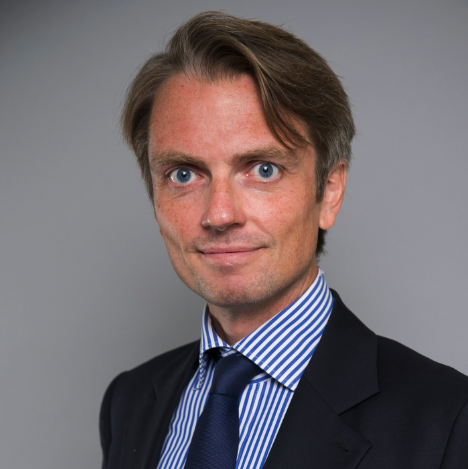This op-ed is based on the welcome speech of Tobias Thyberg, Ambassador of Sweden to Ukraine, at the conference “Year of Reforms during the war” organized by VoxUkraine with the support of International Renaissance Foundation and Sweden Embassy in Ukraine.
I would like to share with you three thoughts about Ukraine.
Ukraine’s current challenges are absolutely generational in nature. The risks that Ukraine is currently facing because of the Russian aggression have never been higher in the history of independent Ukraine. But with those risks there are also opportunities. I hope that there is a chance that Ukraine’s Western partners will finally treat their relations with Ukraine in a way which is worthy of the potential of Ukraine and more importantly worthy of the sacrifices of Ukrainians.The manifestation of that opportunity is things like the unprecidented military support that Ukraine is currently receiving. And also the fact that for the first time other European nations are seriously seeing Ukraine as a future member of the EU. Not only in the rhetorical sense but also as an actual potential future reality — that is something new. So my first message is that we are living in times of exceptional risk but also an exceptional opportunity for Ukraine.
The second thing I want to mention is that when the Swedish representatives with their colleagues from the Baltic states and Norway were in Ukraine (in November 2022 – ed.), they were mostly talking about the war, but also they were talking about reforms. And not reforms in isolation but reforms as a part of Ukraine’s path towards membership of the European Union. That discussion focused on the seven conditions (expectations) that the European Commission set out when it recommended the European Union to grant candidate country status to Ukraine. The bilateral meetings that we have with Ukrainian counterparts were always interesting and always extremely encouraging. But in the latest meetings we could feel that the whole Ukrainian government is now disciplined and focused in a way that I have never experienced before. That is obviously the result of the war and the political determination not to miss the opportunity that this war creates. There was an element of authenticity in those meetings, something very real. That authenticity and that sense of historical opportunity is also something that is very important for civil society in Ukraine. This is one of those historic moments in Ukrainian history of which, unfortunately, Ukraine has too many. This is one of the tragedies of Ukraine, but nevertheless, it is a historic moment and that determination that I saw yesterday among the political counterparts is opening the opportunity for Ukrainian civil society because the government needs all the help it can get to use this chance in the right way.
The third observation — since February 24, 2022, there has been a huge mobilization of civil society which goes beyond anything that Ukraine has seen. This did not happen many times in its history. There is a mobilization on the political and military levels but civil society is mobilized in a similar way. I wasn’t here in 2014, I heard that it was also a crucial moment of the civil society mobilization in Ukraine. But my guess is that what we saw in 2022 is something which goes much further than what we saw in 2014. Do you agree that this is a unique historical moment of civil society mobilization and what it will mean for your organizations? I hope today’s discussion will help shed light on these questions.
This publication was produced within the framework of the “Support of think tanks” project which is carried out by the International Renaissance Foundation with the financial support of the Embassy of Sweden in Ukraine. Its contents are the sole responsibility of the authors and do not necessarily reflect the views of the Embassy of Sweden in Ukraine and the International Renaissance Foundation.
Attention
The authors do not work for, consult to, own shares in or receive funding from any company or organization that would benefit from this article, and have no relevant affiliations




